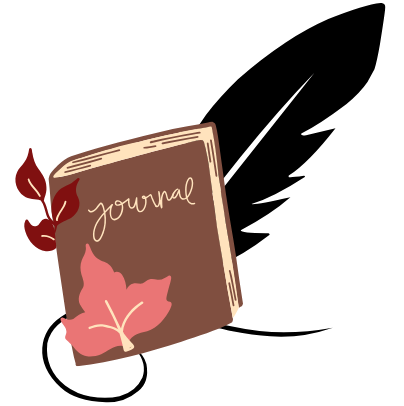As someone who’s been journaling for years, I can confidently say it’s been a game-changer for my personal growth and self-discovery. Today, I’m thrilled to share my insights on this powerful practice that has transformed my life but the lives of countless others.
Journaling goes far beyond simply writing in a diary. It’s a versatile, accessible method for exploring your inner world, processing emotions, and gaining clarity on your thoughts and experiences.
Whether you’re aiming to boost creativity, manage stress, or simply understand yourself better, journaling can be an invaluable ally on your path to self-improvement.
The Essence of Journaling
Journaling involves recording thoughts, feelings, and experiences in written form. This expressive writing allows you to freely explore your inner landscape without judgment, often leading to profound insights and personal growth.
The practice has deep historical roots, with some of the earliest known journals dating back to 10th century Japan. Throughout history, notable figures like Marcus Aurelius, Leonardo da Vinci, and Virginia Woolf have used journaling as a tool for reflection and creativity.
One of the most beautiful aspects of journaling is it’s flexibility. There’s no single “correct” way to journal.
You can use traditional pen and paper, digital apps, or even audio recordings.
The key is finding a method that resonates with you and allows for authentic self-expression.
The Science Behind Journaling
Research consistently shows the many benefits of regular journaling. A landmark study by James Pennebaker in the 1980s found that expressive writing about traumatic experiences led to improved physical and mental health outcomes.
Since then, countless studies have corroborated these findings and expanded our understanding of journaling’s impact.
Journaling engages both hemispheres of the brain, promoting whole-brain functioning. This can lead to improved memory, enhanced problem-solving skills, and increased creativity.
The act of writing also helps organize thoughts and experiences, making them easier to process and understand.
From a psychological perspective, journaling serves as a form of cognitive behavioral therapy. It allows you to identify negative thought patterns, challenge them, and develop more balanced perspectives.
This can be particularly helpful in managing anxiety, depression, and other mental health challenges.
Types of Journaling
There are many approaches to journaling, each with it’s own focus and benefits. Here are some popular types:
Gratitude Journaling
Gratitude journaling involves regularly writing down things you’re thankful for. Studies have shown that practicing gratitude can increase happiness, improve sleep, and enhance interpersonal relationships.
By focusing on the positive aspects of your life, you can shift your mindset and cultivate a more optimistic outlook.
Stream of Consciousness
This free-form writing style involves jotting down whatever comes to mind without censoring or editing. It’s an excellent way to tap into your subconscious and unleash creativity.
Stream of consciousness writing can help you uncover hidden thoughts and feelings, leading to greater self-awareness and personal insights.
Bullet Journaling
Created by Ryder Carroll in 2013, bullet journaling combines traditional journaling with task management and goal-setting. It’s highly customizable and can be adapted to suit various needs. This method helps you stay organized while also providing space for reflection and self-expression.
Reflective Journaling
Reflective journaling involves writing about past experiences and analyzing them to gain new insights. It’s particularly useful for personal growth and learning from past mistakes.
By examining your experiences from different perspectives, you can develop a deeper understanding of yourself and your actions.
Dream Journaling
Recording and analyzing your dreams can provide insights into your subconscious mind and help with problem-solving. By keeping a dream journal, you can identify recurring themes or symbols in your dreams, potentially uncovering hidden wants, fears, or unresolved issues.
Getting Started with Journaling
Starting a journaling practice can be as simple as setting aside a few minutes each day to write. Here’s a step-by-step guide to help you begin:
- Choose your medium: Decide whether you prefer writing by hand or using a digital platform.
Each has it’s own benefits, so choose what feels most comfortable and accessible for you.
- Set a schedule: Commit to writing at a specific time each day, even if it’s just for 5-10 minutes.
Consistency is vital in developing a journaling habit.
- Create a comfortable environment: Find a quiet, comfortable space where you can write without distractions.
This could be a cozy corner in your home, a local café, or even a park bench.
- Start with prompts: If you’re unsure what to write about, use journaling prompts to get started. These can be simple questions like “What am I grateful for today?” or “What’s on my mind right now?” Prompts can help overcome writer’s block and provide direction for your writing.
- Write freely: Don’t worry about grammar, spelling, or structure.
The goal is to express yourself authentically.
Let your thoughts flow without judgment or self-censorship.
- Be consistent: Try to write every day, even if it’s just a few sentences.
Consistency helps build the habit and makes it easier to tap into your thoughts and feelings over time.
- Review periodically: Look back on your entries occasionally to track your progress and gain new insights.
You may be surprised by the patterns and growth you observe over time.
Overcoming Common Challenges
While journaling can be incredibly useful, it’s not without it’s challenges. Here are some common obstacles and strategies to overcome them:
Lack of Time
Many people struggle to find time for journaling in their busy schedules. Start with just 5 minutes a day.
You can gradually increase this as you become more comfortable with the practice.
Remember, even a short journaling session can be useful.
Writer’s Block
Facing a blank page can be intimidating. Use prompts or simply write about your day if you’re stuck.
You can also try freewriting, where you write continuously for a set period without stopping, regardless of what comes out.
Fear of Judgment
Some people worry about others reading their private thoughts. Remember that your journal is for your eyes only.
There’s no need to censor yourself.
If you’re particularly concerned, consider using a digital journal with password protection or keeping your physical journal in a secure location.
Inconsistency
Building a new habit takes time and effort. Set reminders or link journaling to an existing habit, like having your morning coffee.
This can help make journaling a natural part of your daily routine.
Perfectionism
Many people get hung up on making their journal entries perfect. Focus on the process, not the product.
Your journal doesn’t need to be perfect or polished. It’s a tool for self-expression and growth, not a work of art.
Advanced Journaling Techniques
As you become more comfortable with journaling, you might want to explore more advanced techniques:
Dialogue Journaling
This technique involves having a written conversation with different parts of yourself or imaginary mentors. It can help you explore different perspectives and gain insights into complex issues.
Unsent Letter Writing
Writing letters you don’t intend to send can be a powerful way to process feelings about relationships or situations. This technique allows you to express yourself freely without the consequences of actually sending the letter.
Future Self Journaling
Writing entries from the perspective of your future self can help clarify goals and aspirations. This technique encourages you to envision your ideal future and can motivate you to take steps towards achieving it.
Mind Mapping
Using visual diagrams to explore connections between ideas and experiences can be a powerful journaling technique. Mind mapping can help you see patterns and relationships that might not be obvious through linear writing.
Emotion Tracking
Keeping a detailed log of your emotions can help you identify patterns and triggers. This technique can be particularly useful for managing mental health and developing emotional intelligence.
Journaling for Specific Goals
Journaling can be tailored to support various personal and professional goals:
Career Development
Use journaling to reflect on your career path, set goals, and track progress. You can explore your professional strengths and weaknesses, brainstorm ideas for advancement, and work through workplace challenges.
Creativity Boost
Regular free writing can help overcome creative blocks and generate new ideas. Many writers and artists use journaling as a way to tap into their creative flow and explore new concepts.
Stress Management
Writing about stressors can help you process emotions and develop coping strategies. Journaling provides a safe space to vent frustrations and work through difficult feelings.
Personal Growth
Use journaling to track habits, set intentions, and reflect on your personal development journey. You can use your journal to set and review goals, celebrate achievements, and learn from setbacks.
Problem-Solving
Writing out complex problems can help you gain clarity and brainstorm solutions. The act of putting a problem into words often helps to break it down into manageable parts.
The Digital Age of Journaling
While traditional pen-and-paper journaling stays popular, digital journaling offers unique benefits:
Accessibility
Digital journals can be accessed from many devices, making it easy to write anytime, anywhere. This can be particularly helpful for people with busy schedules or those who travel often.
Search Functionality
Easily find past entries or track specific themes over time. This can be incredibly useful for reviewing your progress or finding specific insights you’ve had in the past.
Multimedia Integration
Incorporate photos, videos, or audio recordings into your entries. This can add depth to your journaling practice and help capture memories more vividly.
Enhanced Privacy
Use password protection to keep your journal secure. Many digital journaling apps offer encryption and other security features to protect your private thoughts.
AI-Assisted Reflection
Some apps offer AI-powered insights based on your entries. While this shouldn’t replace your own reflection, it can provide interesting perspectives and patterns you might not have noticed.
However, it’s important to be aware of potential privacy concerns with digital journaling. Always research the security measures of any app you’re considering using.
Some people prefer to keep sensitive information in a physical journal while using digital tools for more general entries.
Journaling as a Complementary Practice
Journaling can enhance the effectiveness of other personal development practices:
Meditation
Use journaling to reflect on your meditation experiences and track your progress. Writing about your meditation sessions can help deepen your understanding of the practice and provide insights into your mental state.
Therapy
Journaling between therapy sessions can help process emotions and prepare topics for discussion. Many therapists encourage their clients to keep a journal as a way to continue the work between sessions.
Goal Setting
Combine journaling with goal-setting techniques for more effective planning and execution. Writing down your goals and the steps to achieve them can increase your commitment and motivation.
Mindfulness
Use journaling to cultivate present-moment awareness and reflect on mindful experiences. Writing about your observations and sensations can help deepen your mindfulness practice.
Physical Exercise
Track your fitness journey and reflect on how exercise impacts your overall well-being. Journaling about your workouts and how they make you feel can help you stay motivated and understand the broader impacts of exercise on your life.
Exercises to Enhance Your Journaling Practice
To get the most out of your journaling practice, try these exercises:
30-Day Challenge
Commit to writing every day for a month, even if it’s just for 5 minutes. This can help establish a consistent journaling habit and overcome initial resistance.
Gratitude List
Write down three things you’re grateful for each day for a week. This simple exercise can significantly boost your mood and overall outlook on life.
Letter to Your Future Self
Write a letter to yourself one year from now. Seal it and read it when the time comes.
This can be a powerful way to set intentions and reflect on your growth over time.
Emotion Exploration
Choose an emotion and write about it for 10 minutes without stopping. This can help you develop a deeper understanding of your emotional landscape and improve emotional intelligence.
Values Clarification
List your top 5 values and write about why they’re important to you. This exercise can help you align your actions with your core values and make more fulfilling decisions.
The Impact of Journaling on Mental Health
Journaling has been shown to have significant positive effects on mental health. Regular journaling can help reduce symptoms of anxiety and depression, improve emotional regulation, and increase overall well-being.
Writing about your thoughts and feelings provides a healthy outlet for processing emotions. It allows you to externalize internal experiences, creating distance and perspective that can be difficult to achieve through thought alone.
Journaling also promotes self-awareness, helping you identify patterns in your thoughts and behaviors. This increased self-understanding can lead to better decision-making and more effective problem-solving.
Also, the act of writing itself can be therapeutic. Many people find the process of putting pen to paper (or fingers to keyboard) calming and meditative.
This can help reduce stress and promote relaxation.
Journaling for Creativity and Self-Expression
For many people, journaling serves as a powerful tool for creative expression. It provides a safe space to explore ideas, experiment with different writing styles, and tap into your imagination.
Many famous writers and artists have used journaling as part of their creative process. Virginia Woolf, for example, kept extensive diaries that documented her life and served as a space for developing her ideas and honing her craft.
Journaling can help overcome creative blocks by providing a low-pressure environment for exploration. The privacy of a journal allows for uninhibited expression, free from the fear of judgment or criticism.
Additionally, journaling can help you develop your unique voice as a writer or artist. Through regular practice, you can explore different styles and techniques, ultimately discovering what resonates most with you.
Journaling for Personal Growth and Self-Discovery
One of the most powerful aspects of journaling is it’s ability to facilitate personal growth and self-discovery. Through regular reflection, you can gain insights into your thoughts, feelings, and behaviors that might otherwise go unnoticed.
Journaling can help you identify patterns in your life, both positive and negative. By recognizing these patterns, you can make conscious choices about which ones to nurture and which to change.
Also, journaling provides a record of your personal journey. Looking back on old entries can reveal how much you’ve grown and changed over time.
This can be incredibly encouraging, especially during challenging periods.
Journaling also allows you to explore your values, beliefs, and goals. By regularly writing about what’s important to you, you can gain clarity on your life’s direction and make decisions that align with your true self.
Journaling for Problem-Solving and Decision-Making
Writing about problems or decisions you’re facing can provide clarity and perspective. The act of articulating a problem in writing often helps to define it more clearly, making it easier to tackle.
Journaling can also help you explore different solutions or options. By writing out potential scenarios, you can think through the consequences of each choice more thoroughly.
Additionally, journaling can help you tap into your intuition. Sometimes, the act of writing freely about a situation can reveal insights or feelings that weren’t immediately obvious.
Many successful people use journaling as a tool for strategic thinking and decision-making. By regularly reflecting on their goals, challenges, and progress, they can make more informed choices and stay focused on what’s most important.
Journaling for Emotional Regulation
Emotional regulation is a crucial skill for mental health and well-being. Journaling can be an effective tool for managing and understanding your emotions.
Writing about your feelings provides a healthy outlet for expression. Instead of bottling up emotions or acting on them impulsively, journaling allows you to process them in a constructive way.
Also, the act of naming and describing your emotions can help reduce their intensity. This process, known as “affect labeling” in psychology, has been shown to decrease the activity in the amygdala, the part of the brain responsible for processing emotions.
Journaling can also help you identify triggers for certain emotions. By tracking your emotional responses over time, you can start to recognize patterns and develop strategies for managing difficult feelings.
Journaling for Goal Setting and Achievement
Your journal can be a powerful tool for setting and achieving goals. Writing down your goals makes them more concrete and increases your commitment to achieving them.
Use your journal to break down big goals into smaller, actionable steps. This can make large goals feel more manageable and help you track your progress over time.
Regular journaling about your goals can help keep you motivated. By reflecting on your progress and the reasons behind your goals, you can maintain your enthusiasm even when facing challenges.
Additionally, journaling can help you overcome obstacles to your goals. When you encounter setbacks, writing about them can help you process the experience and brainstorm solutions.
Journaling can be an effective tool for reducing stress and promoting relaxation.
Writing about stressful events can help you process them more effectively. Research has shown that expressive writing can lead to both physical and psychological benefits, including reduced stress levels.
Journaling can also help you identify sources of stress in your life. By tracking your daily experiences and stress levels, you can start to recognize patterns and make changes to reduce stress.
Also, the act of journaling itself can be a calming, meditative practice. Taking time out of your day to sit quietly and write can help you slow down and center yourself.
Journaling for Improved Relationships
While journaling is often thought of as a solitary activity, it can have significant benefits for your relationships with others.
Writing about your relationships can help you gain clarity on your feelings and needs. This increased self-awareness can lead to better communication with others.
Journaling can also help you process conflicts or disagreements. By writing about a situation from different perspectives, you can develop empathy and understanding for others’ points of view.
Additionally, gratitude journaling can improve your relationships by helping you focus on the positive aspects of your interactions with others. Regularly writing about what you appreciate in your relationships can increase your overall satisfaction and strengthen your connections.
Journaling for Professional Development
Journaling can be a valuable tool for professional growth and career development. Use your journal to reflect on your work experiences, set career goals, and track your professional progress.
Writing about workplace challenges can help you develop problem-solving strategies and improve your performance. It can also provide a safe space to explore career options and make decisions about your professional future.
Journaling can help you prepare for important work events, such as job interviews or presentations. By writing out your thoughts and plans, you can clarify your ideas and boost your confidence.
Many successful professionals use journaling as a leadership tool. Regular reflection can help you develop your leadership style, make better decisions, and navigate complex workplace dynamics.
The Role of Journaling in Education
Journaling has long been recognized as a valuable educational tool. Many teachers incorporate journaling into their curriculum to promote reflection, critical thinking, and writing skills.
For students, journaling can enhance learning by providing a space to process and internalize new information. Writing about what you’ve learned helps reinforce the material and can lead to deeper understanding.
Reflective journaling can also help students develop metacognitive skills – the ability to think about their own thinking and learning processes. This self-awareness can lead to more effective study habits and improved academic performance.
Also, journaling can help students manage academic stress and develop emotional intelligence. By providing a outlet for expressing feelings about school and learning, journaling can support students’ overall well-being.
Journaling for Personal History and Legacy
Your journal can serve as a personal historical record, capturing your experiences, thoughts, and the world around you at a particular moment in time.
Many people find value in documenting their daily lives, major events, and personal growth. These records can be treasured later in life as a way to remember and reflect on past experiences.
Journaling can also be a way to leave a legacy for future generations. Your journals can provide insights into your life, values, and experiences that can be shared with family members or even a wider audience.
Some people choose to use their journals as the basis for memoirs or other written works. The raw material of your daily reflections can be shaped into powerful stories that resonate with others.
The Future of Journaling
As technology continues to evolve, so too does the practice of journaling. While traditional pen-and-paper journaling stays popular, digital tools are opening up new possibilities.
Artificial intelligence and machine learning are being incorporated into some journaling apps, offering features like mood tracking, pattern recognition, and personalized insights based on your entries.
Virtual and augmented reality technologies may soon allow for more immersive journaling experiences, potentially combining written reflection with visual and auditory elements.
However, as journaling becomes more high-tech, it’s important to remember that the core value of the practice comes from self-reflection and expression. Regardless of the medium, the most important aspect of journaling is the act of turning inward and exploring your inner world.
Key Takeaways
- Journaling is a powerful tool for self-reflection, personal growth, and emotional processing.
- Regular journaling can improve mental health, boost creativity, and enhance problem-solving skills.
- There are many types of journaling, from gratitude journaling to bullet journaling.
Experiment to find what works best for you.
- Consistency is key.
Start small and make journaling a daily habit.
- Journaling can complement other personal development practices like meditation and therapy.
Frequently Asked Questions
What is journaling and why is it important?
Journaling is the practice of regularly writing down your thoughts, feelings, and experiences. It’s important because it promotes self-reflection, helps process emotions, and can lead to personal growth and improved mental health.
How often should I journal?
Ideally, you should aim to journal daily, even if it’s just for a few minutes. Consistency is more important than length.
However, any amount of journaling can be useful, so do what works best for your schedule.
What should I write about in my journal?
You can write about anything in your journal – your daily experiences, your feelings, your goals, your dreams, or your reflections on past events. There’s no right or wrong topic.
Some people find it helpful to use prompts if they’re not sure what to write about.
Is it better to journal on paper or digitally?
Both paper and digital journaling have their benefits. Paper journaling can be more tactile and may help you disconnect from screens, while digital journaling offers convenience and searchability.
Choose whichever method you’re more likely to stick with consistently.
Can journaling help with anxiety and depression?
Yes, research has shown that regular journaling can help reduce symptoms of anxiety and depression. It provides a healthy outlet for processing emotions and can help you gain perspective on your thoughts and feelings.
How long should my journal entries be?
There’s no set length for journal entries. They can be as short as a few sentences or as long as several pages.
The important thing is to write regularly, not to hit a specific word count.
Is it okay to reread my old journal entries?
Absolutely! Rereading old entries can provide valuable insights into your personal growth and help you recognize patterns in your thoughts and behaviors.
However, if you find that reading old entries is upsetting, it’s okay to focus on present and future-oriented journaling instead.
Can journaling replace therapy?
While journaling can be a valuable tool for mental health, it’s not a substitute for professional therapy. Journaling can complement therapy, but if you’re struggling with mental health issues, it’s important to seek help from a qualified professional.
How can I make journaling a habit?
To make journaling a habit, try to write at the same time each day, even if it’s just for a few minutes. You can also link journaling to an existing habit, like having your morning coffee, to help make it a regular part of your routine.
What’s the difference between a diary and a journal?
While the terms are often used interchangeably, a diary typically focuses on recording daily events, while a journal often includes more reflection, analysis, and exploration of thoughts and feelings. However, there’s no strict definition, and many people use the terms to mean the same thing.




